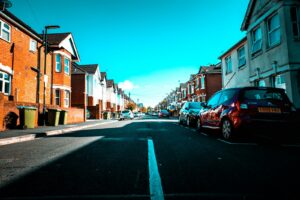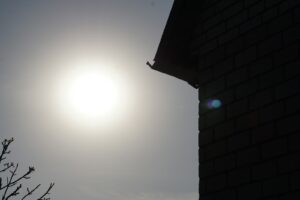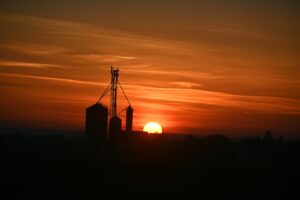George Richards, Director of independent, global organisation Community Jameel, explains why scientists and researchers from countries on the frontlines of the climate crisis should be participating vigorously in COP27 negotiations. Community Jameel works to advance science and address human challenges, such as the climate crisis, health and education.
At COP27 the stakes could not be higher. This is especially true for those countries and communities taking the brunt of climate change, most of which only contribute a tiny proportion of global greenhouse gas emissions. The many lives lost or devastated by the floods in Pakistan are another reminder of the need to act with urgency.
It is vital that voices from these places and peoples are heard at COP27: we must open pathways from these communities for scientists, researchers, and keepers of traditional knowledge to participate vigorously in the negotiations. By including them, we not only make COP27 more equitable, but also more effective. Their findings and perspectives will enhance our collective understanding and can help ensure decisions are better informed. We need to widen the aperture to let in more light.
Egypt’s special representative to the COP27 president has made clear that the process will prioritise the needs and interests of developing countries. This is a welcome aim that we believe can be achieved if we change how the COP process engages with under-represented communities, by supporting climate research around the world, having regard to traditional knowledge, and ensuring meaningful participation by under-represented voices at COP27.
Supporting climate research among under-represented communities
The outcomes of the COP process can only be equitable if we rely on evidence and data from scientists and researchers around the world, not just those working in institutions in countries with the most political clout. Climate scientists and researchers from (and in) under-represented geographies, like Africa and the Arab world, have perspectives and insights that complement those in the West, and they must be heeded.
It is not enough, however, just to invite these researchers to the conference: we need to accelerate funding for climate science in these countries, build more accurate climate data monitoring systems, and strengthen the evidence base for what works in tackling the effects of climate change.
The Jameel Observatory, which launched last year in Kenya, is one example. With a community of data scientists, humanitarians, pastoralists and more, convened by the International Livestock Research Institute in Kenya, the University of Edinburgh, Save the Children, and the Abdul Latif Jameel Poverty Action Lab’s Africa office in Cape Town, the Jameel Observatory harnesses data to monitor, forecast and support early action against outbreaks of hunger, including as a result of climate change.
Supporting climate scientists around the world – including in countries under-represented at COPs – is fundamental to improving our ability to tackle the climate emergency. To be effective, the COP process must include more climate researchers from under-represented communities, and funders of scientific research must provide them with more support.
Learning from under-represented communities on the frontline of the climate crisis
For communities on the frontline of the climate crisis, adaptation – to more extreme weather, to scarcer food and water, to emerging infectious diseases, to hotter and dirtier air – is a central challenge. Long-term mitigation plans have a role to play, but the urgency of the crisis requires adaptation now.
New technological solutions hold promise, but they can also pose threats. In the searing summer heat and humidity of South Asia, for example, air-conditioning units provide relief to those who can afford them, but they are a drain on power, pump hot air out into the neighbourhood, and can fester with bugs that spread sickness in the recycled air flow.
Beyond new technologies, there is older wisdom which we ignore to our folly. Traditional architectural practices have survived over time – sometimes millennia – precisely because they are effective. These include sustainable, nature-based building methods that employ designs and materials that are naturally cooling, and therefore an effective response to rising heat stress. Architects such as Sir David Adjaye and Francis Kéré, or in Egypt, Sarah El Battouty and the late Hassan Fathy, have explored how these practices can be reimagined for contemporary uses.
To tackle this crisis, we need to make use of all the tools available. That is why, when global leaders meet to respond to the climate emergency at COP27, we need to ensure that there is space for voices who can speak to the opportunities presented by traditional knowledge, as well as the promise of new technological solutions.
Increasing the meaningful participation of marginalised voices at COP27
At COP26 last year, representatives of historically under-represented countries – like Mia Mottley, prime minister of Barbados – were among the most powerful voices for change. Advocacy at the political level can have far-reaching impact, but it can often be ignored. We must therefore ensure that science, research and traditional wisdom from historically marginalised communities are embedded in the COP process, and that decisions taken at the conference draw on this body of knowledge.
For this, we need to expand access to COP27. The Egyptian government has called for climate change adaptation to be at the heart of negotiations and is working to engage countries across Africa and the Arab world. But we cannot leave this responsibility to the organisers alone. It is also for the other governments, companies, charities, and many other actors whose pavilions and side events are part of a COP to help make the conference more inclusive. By actively engaging leaders in science, research and traditional knowledge from under-represented communities, we can start to build a broad, globally representative coalition of ideas to tackle climate change.
We must make COP27 more inclusive of under-represented voices than any of its predecessors. Funders of science and learning must support research in countries that have historically been less visible at COPs. The gatekeepers of the COP process need to open their pavilions to scientists and the custodians of traditional wisdom from these countries.
Decisions taken at COP27 that pay attention to learnings and perspectives from around the world – not just those from the West and other countries that typically dominate these conferences – will be more robust and grounded in a richer body of evidence and data. If we can take better informed decisions, we have a better chance of staving off the worst possible outcomes of the climate emergency.
Photos by Anton Ivanchenko and Misbahul Aulia
















